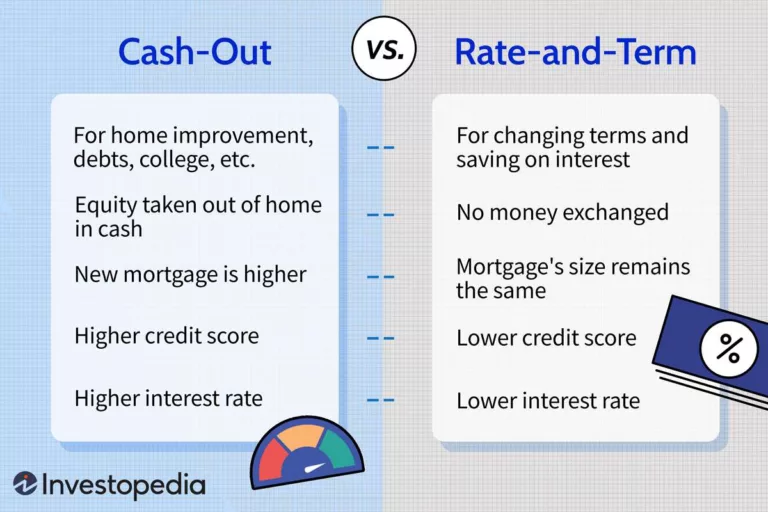Does Net Operating Income Include Mortgage? Debunking the Myth!
No, net operating income does not include mortgage. Net operating income is the income generated from a property after subtracting the operating expenses, but it does not include the mortgage payment.
The mortgage payment is a separate expense that is deducted to determine the property’s cash flow. Net operating income is an important metric used in real estate investing to evaluate the profitability of a property and does not take into account any financing costs.
By analyzing the net operating income, investors can assess the potential cash flow that a property can generate and make informed decisions about its investment potential.

Credit: seekingalpha.com
What Is Net Operating Income (noi)?
Net Operating Income (NOI) is a measure of a property’s profitability, but it does not include mortgage payments. It reflects the property’s overall income after deducting operating expenses like taxes and maintenance costs.
Definition Of Noi
Net Operating Income (NOI) is a financial metric used in real estate to measure the profitability of an investment property. It represents the property’s total income after deducting operating expenses but before subtracting mortgage payments and income taxes. In other words, NOI is the amount of money that the property generates from its operations alone, excluding any financing costs or other non-operating expenses. NOI is calculated by subtracting operating expenses (such as property management fees, insurance costs, maintenance fees, and utilities) from the total income obtained from rent and other sources.Importance Of Noi
NOI is a crucial metric for real estate investors, as it provides an accurate picture of the property’s operational profitability. By focusing on NOI, investors can assess the property’s income potential and make informed decisions about whether to acquire or invest further in the property. Additionally, NOI allows investors to compare the financial performance of different properties, enabling them to analyze and prioritize their investment opportunities. NOI also aids in determining a property’s value, as it serves as the basis for calculating the property’s capitalization rate (cap rate). The cap rate is the ratio of the property’s NOI to its market value and helps determine its potential return on investment. Overall, NOI is a valuable tool that helps investors evaluate the financial viability and potential returns of an investment property.Components Of Net Operating Income
When it comes to understanding the financial health of a real estate property, one key metric that investors and stakeholders often consider is the Net Operating Income (NOI). NOI is an important indicator of a property’s profitability, as it measures the cash flow generated from operations before deducting expenses such as mortgage payments. In this article, we will explore the various components of Net Operating Income and examine how rental income and operating expenses factor into this crucial calculation.
Rental Income
Rental income is a significant component of Net Operating Income. It refers to the revenue generated from leasing out the property, including residential and commercial units. This income can come from monthly rents, parking fees, or even ancillary sources such as laundry facilities or vending machines. When calculating Net Operating Income, it is essential to consider the gross potential rental income, which is the total amount the property could generate if fully occupied at market rents.
Operating Expenses
Operating expenses encompass a wide range of costs associated with running and maintaining a real estate property. These expenses include property management fees, insurance premiums, property taxes, repairs and maintenance costs, utilities, and other administrative expenses. When calculating Net Operating Income, it is crucial to account for all these operating expenses to get an accurate representation of the property’s profitability.
Here is a breakdown of some common operating expenses that need to be considered:
1. Property Management Fees:
- These fees are paid to property management companies that handle day-to-day operations, such as tenant screening, rent collection, and maintenance coordination.
2. Insurance Premiums:
- This expense covers the cost of insurance policies, including property insurance, liability insurance, and potentially flood or earthquake insurance, depending on the property’s location.
3. Property Taxes:
- Property taxes are assessed by the government and can vary based on the property’s value and location. This expense is typically an annual payment but may be paid in installments.
4. Repairs and Maintenance Costs:
- These expenses include routine repairs, such as fixing plumbing issues or repainting walls, as well as any major maintenance projects required to keep the property in good condition.
5. Utilities:
- Utilities include the costs of electricity, gas, water, and any other services provided to the property. These expenses can vary depending on factors like occupancy and seasonality.
6. Administrative Expenses:
- This category includes expenses related to administrative tasks, such as bookkeeping, legal fees, accounting services, and software or technology systems used to manage the property.
By carefully considering and accounting for all the various components of Net Operating Income, investors and stakeholders can gain a comprehensive understanding of a property’s financial performance. Rental income and operating expenses are fundamental in determining the cash flow generated by a property, which ultimately influences its valuation and investment potential.
The Role Of Mortgage In Real Estate
Mortgages play a crucial role in real estate, but net operating income does not include mortgage costs. Understanding this distinction is essential for investors and homeowners looking to navigate the complexities of the real estate market.
Definition Of Mortgage
A mortgage is a financial arrangement in real estate where a lender provides funds to an individual or entity to purchase a property. It is a legally binding contract that enables individuals to become homeowners and investors to acquire properties.
Purpose Of Mortgage In Real Estate
Mortgages play a vital role in real estate transactions, serving multiple essential purposes:
- Enabling Homeownership: For individuals aspiring to own a home, mortgages offer a way to finance their purchase. With the help of a mortgage, buyers can secure the necessary funds and spread the repayment over a period of time.
- Investment Opportunities: Investors in real estate utilize mortgages to finance the purchase of income-generating properties. By leveraging borrowed funds, investors can amplify their purchasing power and achieve a higher return on investment.
- Spreading the Cost: Mortgage lets buyers distribute the cost of the property over an extended period, reducing the burden of paying the entire purchase price upfront. This advantage allows for more affordable monthly payments and improved affordability for buyers.
- Equity Building: As homeowners repay their mortgage, they gradually build equity in their property. Equity represents the difference between the property’s value and the outstanding mortgage amount, and it can be utilized for various purposes, such as additional investments or home improvements.
- Tax Benefits: In many countries, including the United States, mortgage interests are tax-deductible. This provision offers an additional financial advantage for homeowners and real estate investors, helping them reduce their overall tax burden.
These are just a few examples of the multifaceted role of mortgages in real estate. Understanding the purpose and importance of mortgages in the industry is crucial for both homebuyers and real estate investors alike.

Credit: www.linkedin.com
Does Net Operating Income Include Mortgage?
Understanding the components of net operating income (NOI) is essential for real estate investors and property owners. NOI is a valuable metric used to gauge the profitability of an income-producing property. However, there is often confusion surrounding whether or not mortgage payments should be included when calculating NOI. In this article, we will clarify this myth and explore the relation between NOI and mortgage. Let’s dive in!
Clarifying The Myth
One common misconception is that mortgage payments should be included as an expense when calculating net operating income. However, this is not the case. NOI is calculated by subtracting operating expenses from total revenues generated by the property. Operating expenses include costs such as property taxes, insurance, maintenance, utilities, and property management fees. Mortgage payments, on the other hand, are considered a financing expense and are not included in the calculation of net operating income.
Exploring The Relation Between Noi And Mortgage
While mortgage payments are not included in the calculation of net operating income, they still play an important role in assessing the financial performance of a property. Mortgage payments are typically accounted for separately and are deducted from the net operating income to determine the property’s cash flow. Cash flow is a crucial measure for investors, as it indicates how much money is left over after all expenses, including the mortgage, have been paid.
It’s important to note that net operating income focuses solely on the property’s income-generating potential and expenses directly related to its operation. By excluding financing expenses such as mortgage payments, NOI provides a clearer picture of the property’s profitability.
When evaluating an income-producing property, investors should consider both net operating income and cash flow. While NOI helps assess the property’s operational efficiency, cash flow takes into account the impact of financing costs on the property’s profitability.
So, in summary, mortgage payments are not included in the calculation of net operating income. However, they still have an important role in determining the property’s overall financial performance. Understanding the distinction between NOI and mortgage payments is crucial for investors to make informed decisions when analyzing income-producing properties.
Understanding The Impact Of Mortgage On Cash Flow
Understanding the impact of mortgage on cash flow involves evaluating whether net operating income includes the mortgage. By examining this, one can gain insights into how mortgage payments affect cash flow in real estate investments.
When it comes to evaluating real estate investments, understanding the impact of mortgage on cash flow is crucial. Net Operating Income (NOI) is a key factor in determining the profitability of a property, but does it include mortgage expenses? Let’s take a closer look.
Calculation Of Cash Flow
Before we delve into the effect of mortgage on cash flow, let’s understand how cash flow is calculated. Cash flow is the amount of money generated by a property after deducting all expenses from the rental income. The formula for calculating cash flow is straightforward:
Rental Income – Operating Expenses = Cash Flow
Operating expenses typically include property taxes, insurance, maintenance costs, management fees, and more. However, mortgage expenses are not included in the calculation of cash flow. This is where the impact of a mortgage comes into play.
Effect Of Mortgage On Cash Flow
When an investor obtains a mortgage to finance a real estate investment, the mortgage payment must be made on a monthly basis. This payment consists of both the principal and interest portions. The principal payment goes towards reducing the loan balance, while the interest payment is the cost of borrowing.
Since the mortgage payment does not fall under operating expenses, it is not deducted when calculating cash flow. As a result, the presence of a mortgage will decrease the cash flow generated by the property. This means that investors must take mortgage payments into account when assessing the overall profitability of an investment.
However, it’s important to note that while a mortgage reduces cash flow, it also offers certain benefits. The most significant benefit is that the investor can leverage their own capital by using borrowed funds. This allows them to acquire a more expensive property and potentially benefit from appreciation over time. Additionally, mortgage interest payments are tax-deductible, further mitigating the impact on cash flow.
Ultimately, understanding the impact of a mortgage on cash flow is essential for investors to make informed decisions. By considering mortgage expenses alongside other operating costs, investors can accurately assess the profitability and viability of a real estate investment.

Credit: www.geeksforgeeks.org
Frequently Asked Questions For Does Net Operating Income Include Mortgage
What Is Included In Net Operating Income?
Net operating income includes all revenue generated from operations minus operating expenses, such as rent, salaries, and utilities. It is a measure of a company’s profitability, showing how much income is generated before non-operating expenses and taxes are deducted.
Does Net Income Include Mortgage?
Net income does not include mortgage. It refers to the amount earned after deducting expenses and taxes.
Do You Include Mortgage In Operating Expenses?
No, mortgage is not included in operating expenses.
Does Net Operating Income Include Amortization?
No, net operating income does not include amortization.
Conclusion
To summarize, understanding what is included in Net Operating Income (NOI) is essential for real estate investors. While NOI is a measure of a property’s revenue minus operating expenses, it does not include mortgage payments. It is important to calculate NOI accurately to assess the profitability of an investment property.
By separating mortgage payments from NOI, investors can have a clearer picture of their potential cash flow and make informed decisions. Remember, NOI is a valuable metric in evaluating investment opportunities, so ensure accurate calculations to maximize returns.




